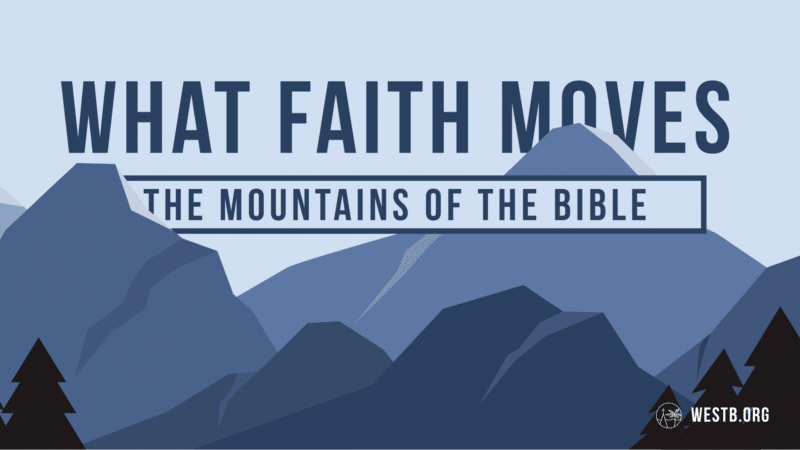Mt. Moriah
Series: What Faith Moves: The Mountains of the Bible
Sermon Title: Mt. Moriah
Speaker: Sam Rainer
Date: August 4,, 2024
Reflect
- What is one of the most challenging decisions you’ve had to make, and how did your faith play a role in your decision-making process?
- If you were asked to give up something very precious to you for a greater purpose, how do you think you would respond?
Encounter
- In Genesis 22:1-2, why do you think God asked Abraham to sacrifice his son Isaac, and what does this reveal about God’s character and intentions?
- How does Abraham’s response in Genesis 22:3-4 demonstrate his faith and trust in God? What actions show his obedience?
- Hebrews 11:17-19 mentions Abraham’s belief in resurrection. How does this belief reflect his understanding of God’s promises?
Transform
- In what ways can we be “living sacrifices” in our daily lives, as described in Romans 12:1-2? How can this concept shape our actions and decisions?
- How can we as a church community support each other in times of testing and challenge, ensuring that we remain obedient and faithful to God’s call?
Additional Discussion Questions
- How do you think the concept of “Jehovah Jireh” (The Lord will provide) can influence your faith during difficult times?
- What lessons can we learn from Abraham’s unwavering faith and obedience, even when God’s commands seemed impossible to understand?
- How can we cultivate a faith that trusts in God’s provision even when we do not see immediate answers to our prayers?
Interesting Facts and Tidbits
- Mount Moriah’s Significance: Mount Moriah is historically and religiously significant as the location where Abraham was asked to sacrifice Isaac. It is also the site where Solomon built the first temple in Jerusalem, which has deep spiritual and historical roots in Judaism, Christianity, and Islam.
- Jehovah Jireh: This is the only place in Scripture where the name “Jehovah Jireh” appears, meaning “The Lord will provide.” It signifies God’s provision in times of great need and testing.
- Paradox of Living Sacrifice: Romans 12:1-2 presents the paradox of being a living sacrifice, where believers are called to die to their own desires and live for God’s purpose continuously.
.
Related Passages
- Romans 12:1-2 (Living Sacrifice): This passage emphasizes the call for believers to present their bodies as a living sacrifice, which is a key theme in the sermon. It provides insight into how believers can live a life dedicated to God’s service.
- Hebrews 11:17-19 (Faith of Abraham): Highlights Abraham’s faith and belief in God’s promises, including his confidence in God’s ability to raise the dead. This ties into the theme of trusting God through trials and tests.
- James 1:2-4 (Testing of Faith): Discusses the purpose of trials and how they produce perseverance and maturity in faith, aligning with the sermon’s theme of God testing Abraham.
- Psalm 22:3 (God’s Presence in Praise): Indicates that God is enthroned on the praises of His people, highlighting the idea that God is intimately involved in our lives and circumstances.
- Isaiah 56:7 (House of Prayer for All Nations): This passage speaks of God’s desire for His temple to be a house of prayer for all nations, reflecting the inclusivity and the future hope mentioned in the sermon related to Mount Moriah.

